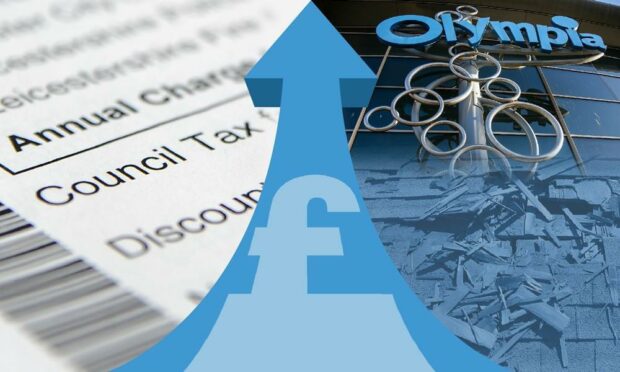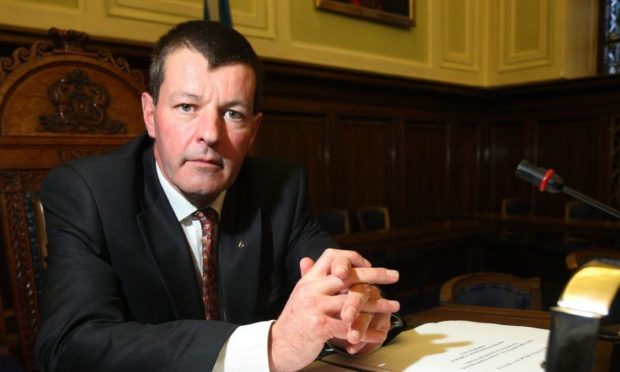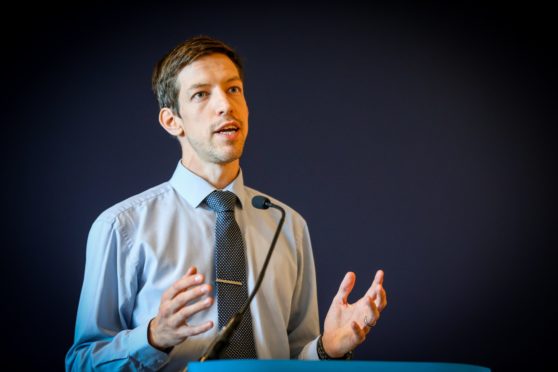Cash-strapped Dundee residents face being hit by a 2.9% council tax increase next year, we can exclusively reveal.
The city’s ruling SNP administration says the rise, which will bring in more than £1.6 million extra for the local authority, will be earmarked to tackle fuel poverty and the attainment gap.
The increase, which is set out below in our interactive council tax calculator, will also be used to support child poverty initiatives and mental health services.
The Scottish Government’s finance secretary, Kate Forbes, announced in December that a freeze on council tax rises will be lifted.
The ruling SNP group on Dundee City Council has confirmed extra cash raised through the increase will be part of an additional spend next year of nearly £3 million, with the rest of the money coming from savings in other areas.
It says the extra cash will be focused on “tackling social inequality, climate change, improving the environment and communities. and driving economic recovery”.
Councillors to consider proposals
The full draft budget, which will be presented to councillors next Thursday, will also allow for a further £3 million of borrowing to fund improvements to parks, open spaces, play parks, environmental initiatives and a city improvement fund.
Among the major announcements set to be made in the budget are:
- £1.665 million to tackle social inequality in Dundee – poverty, fairness, mental health, educational attainment and the energy crisis.
- £450k to support initiatives that drive economic recovery – funding for businesses and events, and support for roles that bring in external funding for the city.
- £400k to enhance communities and the natural environment – environmental improvements, increased staffing and funding to tackle anti-social behaviour.
- £210k for the city’s approach to tackling climate change, including further development work on active travel (supported by £750k of capital investment), addressing air quality and supporting Dundee’s Climate Leadership Group.
Dundee City Council’s finance spokesman Willie Sawers said: “This budget sets out our priorities very clearly.
“We have sought to minimise any increase in the council tax, keeping it to the equivalent of 77p per week and under 3%, whilst using any monies generated in a targeted way to help those most in need.
“In that sense, our budget is redistributive.”
Councillors in Dundee face having to balance the books after being met with a £4.5 million repair bill on the Olympia swimming pool and more than £4 million for a blunder that saw roofs installed on more 400 homes below safety standards.
Mr Sawers said tackling poverty, climate change and driving economic growth are “key priorities” for the administration.
“We know that actions speak louder than words and we believe that this budget provides the actions that the city needs right now,” he said.
“Despite the backdrop of more than a decade of Westminster austerity, cuts to welfare support and Brexit, our administration has sought to minimise the impact on our citizens.”
‘No one wants to see bills increase’
Mr Sawers confirmed more than £1.6 million of savings was identified through a review of staffing in areas where there are already vacancies, surplus property closures and a change to the cashier service.
After factoring in the 2.9% council tax increase, and increased costs, a balance of £300k will also be taken from reserves to deliver a balanced budget.
Dundee City Council leader John Alexander acknowledged “no one wants to see bills increase”.
But he said he believes people will understand “when they see that the equivalent of every penny raised is being targeted towards addressing poverty, the energy crisis and educational attainment.”
“Our commitment to Dundonians is clear,” Mr Alexander said.
“Our approach is bearing fruit and in the last five years, as one example, employment figures in the city have risen by 9.4% and I think that speaks volumes.
“We are ambitious for the city that we work for, live in and love.”
The lifting of the freeze on council tax rises means hard up local authorities have been given full flexibility over levels for the first time since the SNP came to power in 2007.
Finance Secretary Kate Forbes announced last month that an additional £120 million will be made available to councils to stop “inflation-busting” tax rises.
But with the £12.6 billion allocated to council amounting to a real-terms cut of £251 million, it is feared councils will need to hike up rates to sustain key services.


